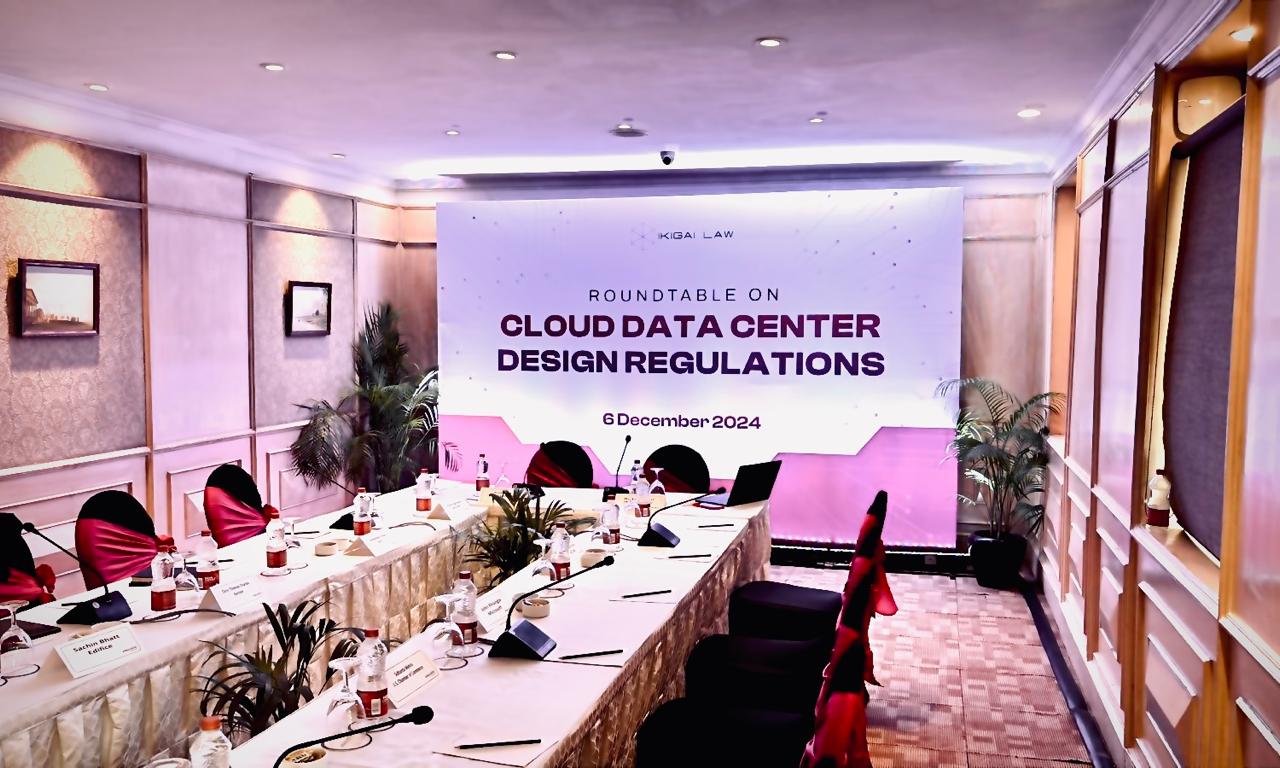On 12 December 2019, Parliament of India appointed a ‘joint select committee’ (“Committee”) to examine the Personal Data Protection Bill 2019 (“PDP Bill”)[1]. On 11 February 2020, two new members were appointed to the Committee- Manish Tewari from Indian National Congress and Mahua Moitra from Trinamool Congress[2]. With the Committee membership restored to its full strength, it will be interesting to see how the political affiliation of these MPs i.e. the positions of their respective political parties plays out in the Committee’s recommendations for the PDP Bill. This article examines the political affiliations of these MPs based on publicly available information to understand their possible stance on key issues under the PDP Bill.
Key issues under the PDP Bill:
Political parties are unlikely to take strong positions on legislations like the PDP Bill. Such legislations/issues do not polarize political parties to the same extent as issues such as the Citizenship Amendment Bill, 2019[3], or dissolution of Article 370 of the Constitution of India[4]. Nevertheless, four key issues on which the PDP Bill could possibly result in some political polarization between Members of Parliament (“MPs”) from different political parties in the Committee are as follows[5]:
- Data localization and restrictions on cross border data transfers
- Powers of the government to exempt government departments/agencies
- Powers of the government to seek access to anonymized personal data/non-personal data
- Composition of the Data Protection Authority of India (“DPA”), which consists only of government members under the PDP Bill
Even within these issues some will be more important to MPs than others. For instance, the provision on the government’s exemption powers[6] will probably be of greatest concern to most MPs, followed by the composition of the DPA. To better understand this, the sections below look at the composition of the committee and the possible positions of the MPs’ respective political parties on the PDP Bill.
Composition of the Committee:
The Committee consists of 30 members in total, with 20 members from the Lok Sabha[7] and 10 members from the Rajya Sabha[8]. The following is the party-wise breakup of the Committee members:
| Bharatiya Janta Party (“BJP”) | Meenakshi Lekhi (Chairperson), Bhupendra Yadav, P.P. Chaudhary, S. S. Ahluwalia, Tejasvi Surya, Ajay Bhatt, Col. Rajyavardhan Singh Rathore, Sanjay Jaiswal, Kiritbhai Solanki, Arvind Dharmapuri, Dr. Heena Gavit , Uday Pratap Singh, Suresh Prabhu, Rajeev Chandrasekhar, Ashwini Vaishnaw |
| Indian National Congress (“INC”) | Jairam Ramesh, Vivek K. Tankha, Gaurav Gogoi, Manish Tewari |
| Trinamool Congress (“TMC”) | Derek O’Brien Mahua Moitra |
| Biju Janata Dal (“BJD”) | Amar Patnaik Bhartruhari Mahtab |
| All India Anna Dravida Munnetra Kazhagam (“AIADMK”) | A. Navaneethakrishnan |
| Dravida Munnetra Kazhagam (“DMK”) | Kanimozhi Karunanidhi |
| Janata Dal (United) (“JDU”) | Rajiv Ranjan Singh |
| Samajwadi Party (“SP”) | Ram Gopal Yadav |
| Shiv Sena | Dr.Shrikant Eknath Shinde – Shiv Sena |
| YSR Congress | PV Midhun Reddy– YSR Congress |
| Bahujan Samaj Party (“BSP”) | Ritesh Pandey |
The Committee’s composition indicates that the government already has a heavy hand, with 15 Committee members from the BJP. Decisions in a select committee (or in any parliamentary committee) are made through simple majority voting, with the Chairperson having a casting vote[9]. This means that even if all opposition party members vote against a proposed recommendation, the BJP can still get it passed. However, the BJP may not have to go so far. Certain non-BJP Committee members may also support the BJP’s position on some of the controversial/critical issues under the PDP Bill, as has been examined below.
Understanding the position of different political parties in the Committee:
Considering that the BJP enjoys maximum voting power in the Committee, it is important to understand the party’s position on key issues under the PDP Bill.
BJP members may be reasonably expected to mirror the government’s position on key issues under the PDP Bill. This means that they will support- (a) data localization measures; (b) the government’s power to access non-personal data held by companies; (c) the proposed composition of the DPA, and (d) the government’s power to exempt government departments and agencies from the ambit of the PDP Bill. The government may be willing to accept small changes to these provisions, but it will not compromise on its principal stance on these issues. This is because the government has pushed for greater state control in data protection-related measures previously on multiple occasions. For instance, sharing of companies’ data with other startups and data localization measures were proposed in the draft national e-commerce policy released in February 2019[10]. Though the committee on non-personal data appointed by the IT Ministry is yet to release its report[11], the government still included provisions on non-personal data in the PDP Bill. This indicates that the government would want the Committee to only suggest minimal changes, if any at all, to these provisions.
To understand the position that may be taken by members of other parties, we need to examine their relationship with the government. Importantly, we have to see how these parties positioned themselves on key issues over the last 1-2 years, such as the Citizenship (Amendment) Bill, 2019 and the dissolution of Article 370 of the Constitution of India. We have examined the possible positions of the political parties that have two or more MPs in the Committee:
1. Indian National Congress: INC is the most prominent opposition party in the Committee, and will be represented by Jairam Ramesh, their senior-most MP in the Committee. Previously, he has- (a) actively raised the issue of exclusion of beneficiaries due to mandatory usage of Aadhaar in Parliament[12], and (b) commented on the use of personal data and the state’s access to personal data in India’s privacy legislation[13]. He is also the chairman of the ad-hoc Committee in the Rajya Sabha to ‘study the alarming issue of pornography on social media and its effect on children and society as a whole’[14].
Importantly, user privacy and data protection are important issues for INC as a political party. Their manifesto for the 2019 Lok Sabha elections discusses how they will bring a law for upholding the right to privacy and introduce adequate safeguards against excessive surveillance and monitoring[15].
Thus, the INC can be expected to oppose the following provisions under the Bill- (a) government’s powers to exempt other government agencies and departments; (b) government’s power to access non-personal data from companies, and (c) the composition of the DPA. It may also seek changes to the provision on data localization, though it may not be entirely opposed to it.
2. Trinamool Congress: TMC is another strong opposition party in the Committee. Other than their strong opposition to BJP on most issues, both the TMC MPs on the Committee have spoken vocally about the need for a data protection legislation in India. In August 2018, Mahua Moitra had criticised the government for delaying the introduction of the Personal Data Protection Bill, 2018 in Parliament and questioned if these delays were a result of the tech industry’s lobbying efforts[16]. In July 2019, Derek O’Brien had protested with other TMC MPs outside Parliament, demanding that the government should introduce the PDP Bill in Parliament[17]. Mahua Moitra is also the only non-BJP member in the Committee from the Standing Committee on Information Technology[18].
The stance taken by TMC MPs in the Committee will be similar to that of INC. They can be expected to raise concerns over the exemption provision, the government’s power to seek access to non-personal data and the composition of the DPA.
3. Biju Janata Dal: The BJD can be expected to support the BJP’s position in the Committee. The party which used to follow an ‘equidistant policy’ for both BJP and INC has supported the BJP since its re-election in May 2019 on various controversial legislations[19]. It also supported the nomination of a BJP MP to the Rajya Sabha, Ashwin Vaishnaw, who is also a Committee member[20]. Importantly, one of the BJD MPs in the Committee, Bhartruhari Mehtab, had stated in 2017 that hosting of servers outside India posed a greater threat to the country’s security and citizens’ privacy, indicating his support for data localization measures[21].
Thus, the BJD is likely to support BJP on all the previously discussed key issues under the PDP Bill.
Apart from these three, all other political parties have a single MP only in the Committee. Of these parties, the BJP already has political alliances with AIADMK[22] and JDU[23]. Though BJP and YSR Congress are technically opposed to each other[24], the YSR Congress has supported BJP on various legislations over the last one year[25]. It is safe to assume that these parties will not oppose the government’s position on the PDP Bill. The remaining parties- DMK, BSP, Shiv Sena and SP- do not really have a strong position on any issue under the PDP Bill. Their opposition to the PDP Bill, if any, will not affect the Committee’s decisions drastically. Thus, it seems that the BJP enjoys both numerical and political support in the Committee, not only through its own MPs, but also from MPs of other parties.
Conclusion:
As far as the key provisions under the PDP Bill are concerned, it seems unlikely that the Committee will recommend any major changes to these provisions in its final report. For other important issues which are not as controversial (such as the lack of alternative grounds for processing personal data other than consent, or the age limit for defining a ‘child’), it is still possible that the Committee may recommend language changes. Nevertheless, it is difficult to determine what recommendations will ultimately be made by the Committee, and by when. The Committee only concluded its consultation process for receiving comments from the general public on 25 February 2020[26], so it will take some time for it to go through these comments and factor them into its deliberations.
Importantly, TMC MP and Committee member Derek O’Brien recently tweeted a video of himself after a Committee meeting, mentioning that that the committee possibly may not come out with its report till another year[27]. It could be quite some time before we find out how the political dynamics of the Committee members actually played out in the Committee recommendations.
This post is authored by Arpit Gupta, Associate with inputs from Nehaa Chaudhari, Director, Public Policy. Please reach out to us at contact@ikigailaw.com
[1] See pg. 42, Parliamentary Bulletin-I, Rajya Sabha, 12 December 2019, http://164.100.47.5/Bullitensessions/sessionno/250/121219.pdf.
[2] See pg. 17, Lok Sabha- Bulletin Part-I, 11 February 2020, http://164.100.47.193/bull1/17/III/11.02.2020.pdf.
[3] Citizenship bill clears Rajya Sabha test in big , Livemint, 11 December 2019, https://www.livemint.com/news/india/citizenship-amendment-bill-2019-gets-parliament-s-nod-11576077705470.html
[4] Government abolishes Article 370, massive opposition uproar in House, Economic Times, 09 August 2019, https://economictimes.indiatimes.com/news/politics-and-nation/government-abolishes-article-370-massive-opposition-uproar-in-house/articleshow/70533966.cms?from=mdr.
[5] These issues are discussed in the following clauses of the PDP Bill- (a) data localization and cross-border data transfer restrictions- clauses 33 and 34; (b) power of the government to exempt government agencies from the provisions of the PDP Bill- clause 35; (c) power of the government to access non-personal data from companies- clause 91; (d) composition of the DPA- clause 42.
[6] Clause 35 of the PDP Bill.
[7] Supplementary list of business, Lok Sabha, 11 December 2019, http://164.100.47.193/lob/17/Second/SLOB11.12.2019_.pdf.
[8] Pg. 5, Revised list of business, Rajya Sabha, 12 December 2019, http://164.100.47.5/newlobsessions/sessionno/250/R121219.pdf.
[9] Rules 261 and 262, Rules of Procedure and Conduct of Business in Lok Sabha.
[10] ‘Draft national e-commerce policy- India’s data for India’s development’, February 2019, https://dipp.gov.in/sites/default/files/DraftNational_e-commerce_Policy_23February2019.pdf.
[11] Constitution of committee of experts to deliberate on data governance framework, Ministry of Electronics and Information Technology, 13 September 2019, https://meity.gov.in/writereaddata/files/constitution_of_committee_of_experts_to_deliberate_on_data_governance-framework.pdf.
[12] Pg. 65, Jairam Ramesh, Rajya Sabha debate, fifteenth session, 10
April 2017, http://164.100.47.5/newdebate/
242/10042017/Fullday.pdf.
[13] IIMB-FICCI Conference explores design of a new data economy in India, Indian Institute of Management, 11 October 2019, https://www.iimb.ac.in/iimb-ficci-new-data-economy-india.
[14] Press Release by the Rajya Sabha ad-hoc committee, 03 February 2020, https://rajyasabha.nic.in/rsnew/Committee_site/Committee_File/Press_ReleaseFile/71/140/295P_2020_2_15.pdf
[15] Pg. 53, INC Manifesto for Lok Sabha elections 2019, https://manifesto.inc.in/pdf/english.pdf.
[16] Are ‘Vested Interests’ Delaying Passage of Data Protection Bill, Asks Mahua Moitra, The Wire, 01 August 2019, https://thewire.in/government/personal-data-protection-bill-mahua-moitra
[17] TMC MPs protest outside Parliament in Delhi, demand to bring Data Protection Law, Business Standard, 17 July 2019, https://www.business-standard.com/multimedia/video-gallery/general/tmc-mps-protest-outside-parliament-in-delhi-demand-to-bring-data-protection-law-87557.htm.
[18] The list of members of the Standing Committee on Information Technology is available at pg. 10, Lok Sabha Bulletin Part-II, 13 September 2019, http://164.100.47.193/bull2/2019/13.9.19.pdf.
[19] More Ally Than Enemy: BJP And BJD’s Strange Connection in Odisha, The Wire, 16 August 2019, https://thewire.in/government/more-ally-than-enemy-bjp-and-bjds-strange-connection-in-odisha.
[20] BJD to back BJP candidate Ashwini Vaishnav for seat in Rajya Sabha, Business Standard, 22 June 2019, https://www.business-standard.com/article/current-affairs/bjd-to-back-bjp-candidate-ashwini-vaishnav-for-seat-in-rajya-sabha-119062200035_1.html.
[21] Discussion on Supplementary Demands for Grants (General)-2017-18 and Demands for Excess Grants (General) for 2014-15, Sixteenth Lok Sabha, 01 August 2017, http://loksabhaph.nic.in/Debates/Result16.aspx?dbsl=11562
[22] AIADMK faces dual anti-incumbency as a result of its tie-up with BJP, The Economic Times, 16 April 2019, https://economictimes.indiatimes.com/news/elections/lok-sabha/tamil-nadu/aiadmk-faces-dual-anti-incumbency-as-a-result-of-its-tie-up-with-bjp/articleshow/68898811.cms.
[23] JDU, BJP relationship is well tested and more than two decades old: Sushil Modi, Business Standard, 31 December 2019, https://www.business-standard.com/article/news-ani/jdu-bjp-relationship-is-well-tested-and-more-than-two-decades-old-sushil-modi-119123100065_1.html.
[24] BJP rules out possibility of YSRC joining National Democratic Alliance, Hindustan Times, 15 February 2020, https://www.hindustantimes.com/india-news/bjp-rules-out-possibility-of-ysrc-joining-national-democratic-alliance/story-9RbSbbfAOrwRMKRy8ZHH1L.html.
[25] In Rajya Sabha, TRS to vote against; YSRC and TDP to back BJP, Times of India, 11 December 2019, https://timesofindia.indiatimes.com/city/hyderabad/in-rs-trs-to-vote-against-ysrc-tdp-to-back-bjp/articleshow/72464357.cms.
[26] Joint Committee on the Personal Data Protection Bill, 2019 seeks views and suggestions, Press Information Bureau, 03 February 2020, https://pib.gov.in/PressReleasePage.aspx?PRID=1601695.
[27] https://twitter.com/derekobrienmp/status/1229794467147808772.










